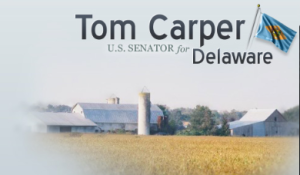
By Hirak Mukhopadhyay
This November marked the fifty-year anniversary of John Lindsay being elected Mayor of New York City. Lindsay, a Republican New York City Congressman, proclaimed he will have the most successful administration “This city has ever seen.” But as a struggling mayor who made far too mistakes, Lindsay never lived up to the hype. Sadly, his brilliant civil rights record got lost in the fray.
Even after all these years, John Lindsay is easily the most good-looking and glamorous New York City Mayor of all time, but far from the best. Unaware of the harsh realities of the city and plagued by liberal idealism, he quickly faltered. Transit strikes, bureaucracies, botched integration of black children in schools, sanitation workers’ strikes, another botched plan to move low-income blacks into middle-class white neighborhoods, and putting the city in massive debt is what most remember Lindsay for, even if many of his policies and beliefs were well-intended. Lindsay stuck around for a few years after leaving City Hall, but quickly lost relevance. Each law firm Lindsay joined went out of business, and soon found himself without health insurance, at a time where his health was poor, and had little money. Suffering from Parkinson’s, he passed away at the age of 79 in 2000. It was a sad end to a disappointing career, although it had much promise.
John Lindsay the civil rights crusader however, was a different story. Lindsay was Eisenhower-appointed Attorney General Herbert Brownell’s assistant in the Department of Justice, where he did civil rights work, and Brownell later contributed to the Civil Rights Act of 1957. Lindsay then went on to be a member of Congress, where he voted for the Civil Rights Act of 1964. Lindsay’s commitment to civil rights will certainly never be up for debate.
The 50th anniversary of John Lindsay’s election could not have come at a better time. Recently, there has been rioting, protesting, and marching due to recent police brutality in Ferguson and Baltimore, among others. But in 1968, as riots broke out after the assassination of Martin Luther King Jr., Lindsay was on the streets of Harlem that night. As Lindsay’s assistant David Garth recalled:
‘’There was a wall of people coming across 125th Street, going from west to east. I thought we were dead. John raised his hands, said he was sorry. It was very quiet. My feeling was, his appearance there was very reassuring to people because it wasn’t the first time they had seen him. He had gone there on a regular basis. That gave him credibility when it hit the fan.”
Keep in mind that Lindsay was out on the streets of Harlem, as a white, patrician, Yale University and Yale Law School educated, Upper-East side Congressmen-turned-Mayor with virtually no security, just a few years after the JFK assassination, on nights where locals in the neighborhood were alert and frightful. It was an act of tremendous courage. Detroit and Los Angeles burned, but New York City suffered far less damage. In 2015, there is constant verbal admonishment towards civil rights protesters and movements like #BlackLivesMatter. John Lindsay never criticized civil rights protests as mayor; he participated in them. Not surprisingly, Lindsay Administration alumni include figures such as Washington D.C. Mayor Walter Washington and Congresswoman Eleanor Holmes Norton, both of whom suffered tremendous discrimination and hardship for being black. Civil rights were in the core of Lindsay’s image, but Lindsay has not yet gotten the recognition he deserves.
Fifty years later, Lindsay as a mayor overall has a mixed reception, with a lot of negative reviews for being reckless and stubborn, but praise as well for being a true progressive. But when it comes to civil rights and fighting for the rights of African-Americans, his legacy should be admired. But in difficult times like these, it cannot be forgotten that fifty years ago, someone even as aristocratic as Lindsay fearlessly stood up for equality, even when that stance was far more unpopular than it is today. Lindsay does not have to be the greatest mayor New York City has ever seen; just being an inspirational one is enough.
Sources:
BEST MAYORS: John Lindsay. Perf. Various. YouTube. YouTube.com, 3 Jan. 2014. Web. 30 Oct. 2015. <https://www.youtube.com/watch?v=l_v_WbB2ngY>.
Fun City Revisited: The Lindsay Years. Dir. Rob Issen. Perf. John Lindsay. Vimeo. Vimeo.com, 2013. Web. 30 Oct. 2015. <https://vimeo.com/53560997>.
John Lindsay Becomes Mayor Of New York (1965). Perf. John Lindsay. YouTube.com. YouTube, 13 Apr. 2014. Web. 30 Oct. 2015. <https://www.youtube.com/watch?v=6Z0OOxX7ckM>.
John Lindsay, Life Magazine Cover. 1965. Collection of the U.S. House of Representatives, Washington D.C. History, Art, Archives, United States House of Representatives. Web. 30 Oct. 15. <http://history.house.gov/Collection/Listing/2005/2005-208-000/>.
McFadden, Robert D. “John V. Lindsay, Mayor and Maverick, Dies at 79.” The New York Times. The New York Times, 20 Dec. 2000. Web. 30 Oct. 2015. <http://www.nytimes.com/2000/12/21/nyregion/john-v-lindsay-mayor-and-maverick-dies-at-79.html?src=pm&pagewanted=1>.
Purnick, Joyce. “Metro Matters; Remembering A Mayor, Faults and All.” The New York Times. The New York Times, 21 Dec. 2000. Web. 30 Oct. 2015. <http://www.nytimes.com/2000/12/21/nyregion/metro-matters-remembering-a-mayor-faults-and-all.html>.






